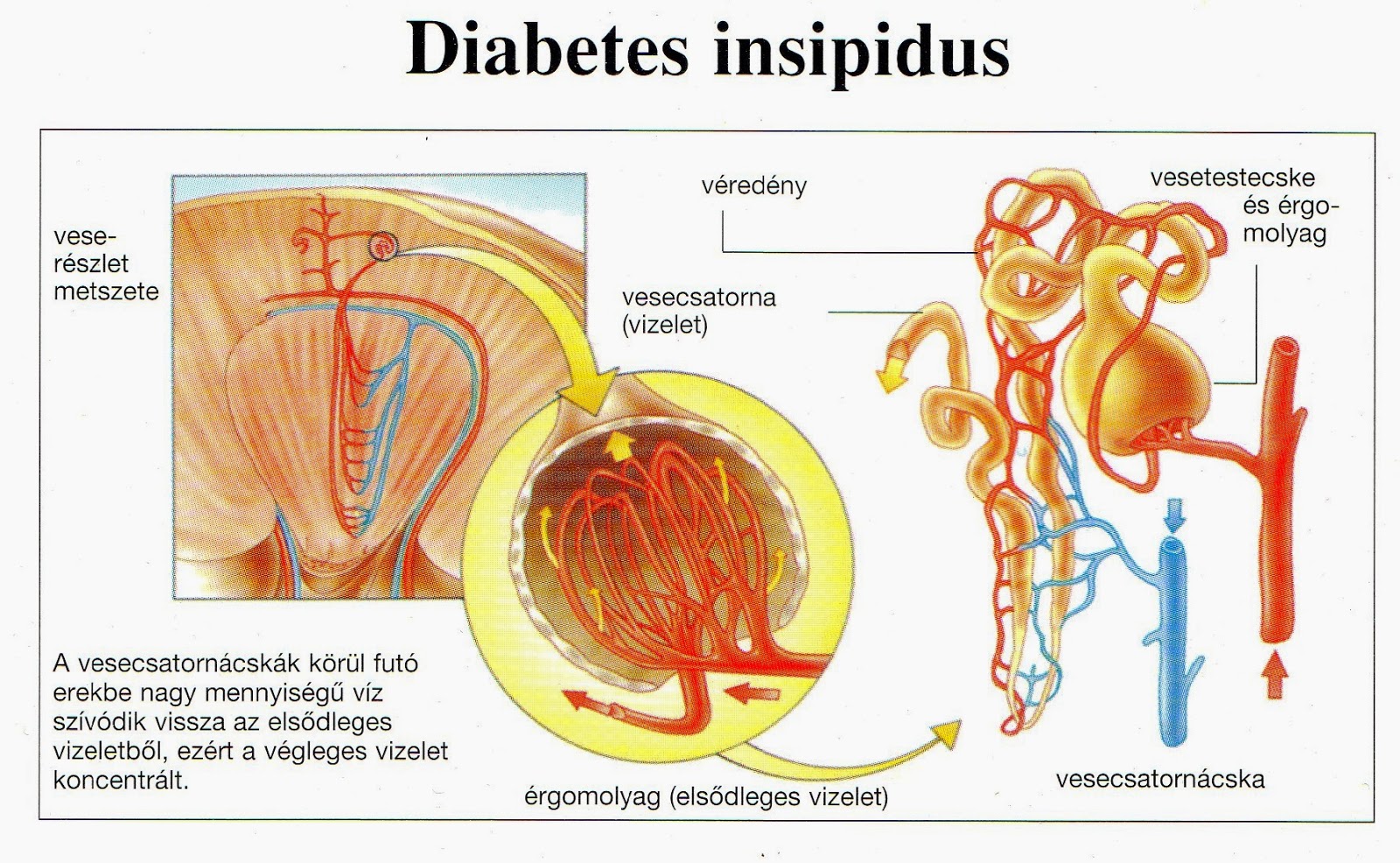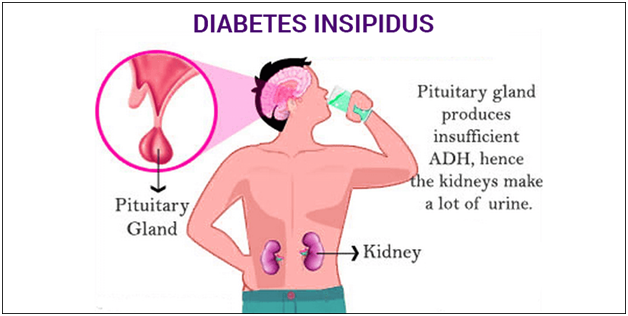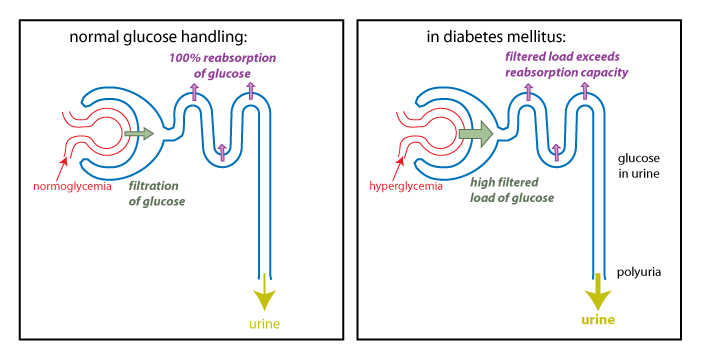does diabetes insipidus cause hyperglycemia Hyperglycemia mellitus insipidus mnemonics pharmacology
Diabetes is a condition that affects millions of people worldwide. It is characterized by a high blood sugar level due to the body’s inability to produce or use insulin effectively. However, there is another type of diabetes called diabetes insipidus that is often overlooked but is equally important.
What is Diabetes Insipidus?
Diabetes insipidus (DI) is a rare condition that affects the kidneys’ ability to conserve water, leading to frequent urination and excessive thirst. Unlike diabetes mellitus, which is caused by high blood sugar levels, DI is caused by a deficiency in antidiuretic hormone (ADH) or the kidneys’ inability to respond to it. DI can occur at any age, but it is more common in adults than children.
 Symptoms of Diabetes Insipidus
Symptoms of Diabetes Insipidus
The symptoms of DI are similar to those of diabetes mellitus, such as excessive thirst and urination. However, unlike diabetes mellitus, DI does not cause high blood sugar levels.
Some of the common symptoms of DI include:
- Excessive thirst
- Excessive urination
- Dry mouth
- Dehydration
- Weakness
- Dizziness
- Confusion
If you are experiencing any of these symptoms, it is important to speak to your healthcare provider as soon as possible. Your healthcare provider may perform a urine test to check your kidney function and diagnose DI.
The Difference Between Diabetes Mellitus and Diabetes Insipidus
Diabetes mellitus and diabetes insipidus are two entirely different diseases, although they have similar symptoms. Diabetes mellitus is caused by a deficiency in insulin, whereas diabetes insipidus is caused by a deficiency in ADH or the kidneys’ inability to respond to it.
 Furthermore, diabetes mellitus can be treated with lifestyle changes, medication, or insulin therapy, whereas diabetes insipidus is treated with medications that stimulate the body’s ADH production or replace the missing hormone. It is important to speak to your healthcare provider to determine the best course of treatment for your condition.
Furthermore, diabetes mellitus can be treated with lifestyle changes, medication, or insulin therapy, whereas diabetes insipidus is treated with medications that stimulate the body’s ADH production or replace the missing hormone. It is important to speak to your healthcare provider to determine the best course of treatment for your condition.
Conclusion
Diabetes insipidus is a rare condition that affects the kidneys’ ability to conserve water, leading to excessive thirst and urination. Unlike diabetes mellitus, DI is caused by a deficiency in ADH or the kidneys’ inability to respond to it. Although DI can be a chronic and lifelong condition, it can be effectively managed with proper treatment. If you are experiencing any symptoms of DI, it is important to speak to your healthcare provider as soon as possible.
If you are searching about Low Blood Sugar Symptoms: What is Diabetes Insipidus Symptoms you’ve came to the right page. We have 5 Pictures about Low Blood Sugar Symptoms: What is Diabetes Insipidus Symptoms like DM1 signs & symptoms | Nursing school survival, Nursing mnemonics, Nurse, Explain The Difference Between Diabetes Mellitus And Diabetes Insipidus and also Pin on Just So We Know!!!. Read more:
Low Blood Sugar Symptoms: What Is Diabetes Insipidus Symptoms
 lowblood-sugarsymptoms.blogspot.comdiabetes insipidus symptoms blood sugar central di signs caused neurogenic low avp hormone visit mellitus vasopressin deficiency arginine such production
lowblood-sugarsymptoms.blogspot.comdiabetes insipidus symptoms blood sugar central di signs caused neurogenic low avp hormone visit mellitus vasopressin deficiency arginine such production
Explain The Difference Between Diabetes Mellitus And Diabetes Insipidus
 deathhealth.blogspot.cominsipidus mellitus diagnosis
deathhealth.blogspot.cominsipidus mellitus diagnosis
Pin On Just So We Know!!!
 www.pinterest.jphyperglycemia mellitus insipidus mnemonics pharmacology
www.pinterest.jphyperglycemia mellitus insipidus mnemonics pharmacology
Hyperglycemia In Diabetes | France| PDF | PPT| Case Reports | Symptoms
 www.omicsonline.orgdiabetes hyperglycemia renal ppt pdf part blood physiology nephron high filtration symptoms affects sugar
www.omicsonline.orgdiabetes hyperglycemia renal ppt pdf part blood physiology nephron high filtration symptoms affects sugar
DM1 Signs & Symptoms | Nursing School Survival, Nursing Mnemonics, Nurse
 www.pinterest.comdiabetes mellitus mnemonics insipidus nclex hyperglycemia mnemonic exam endocrino polyphagia polyuria dm1 physical insulin implication rn lifee fo goodell hegar
www.pinterest.comdiabetes mellitus mnemonics insipidus nclex hyperglycemia mnemonic exam endocrino polyphagia polyuria dm1 physical insulin implication rn lifee fo goodell hegar
Hyperglycemia mellitus insipidus mnemonics pharmacology. Diabetes mellitus mnemonics insipidus nclex hyperglycemia mnemonic exam endocrino polyphagia polyuria dm1 physical insulin implication rn lifee fo goodell hegar. Diabetes hyperglycemia renal ppt pdf part blood physiology nephron high filtration symptoms affects sugar